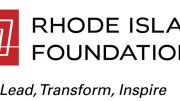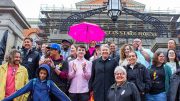Kenya censors controversial LGBTQ movie before Cannes Film Festival
A month before the Cannes Film Festival Un Certain Regard premiere of “Rafiki,” a Kenyan film that deals with LGBTQ themes, film board officials in Kenya have censored it.
The movie—adopted originally from a short story—portrays a romance between two teenage girls.
In defending their decision, the film board officials claim the subject of the movie goes against the “laws and culture of the Kenyan people.”
The ban followed a series of recent anti-LGBTQ acts on behalf of the government of Kenya, where homosexuality is illegal. Last year, a Disney Channel show was banned after the addition of a gay character. And, more recently, Uhuru Kenyatta, the country’s president, voiced anti-LGBTQ sentiments to CNN in an interview.
But director Wanuri Kahiu, of Kenya, believes the movie ban discourages conversations surrounding such issues in Kenyan society at large.
First school for transgender students opened in Pakistan ()
The Gender Guardian, a school created for the purpose of serving the transgender community, opened its doors April 15 in Lahore.
The institution offers a range of vocational and academic classes for twelve years of students.
The creation of the Gender Guardian follows a recent trend of transgender support and positivity in the country. Just last month, Marvia Malik became Pakistan’s first transgender news anchor.
Founders of the school wanted to shed light on the transgender community after a similar school in Indonesia closed in 2016.
San Diego opens its first LGBTQ-friendly senior housing complex
North Park Seniors, an “LGBT-affirming” senior housing complex, opened Friday, April 27, in North Park, a neighborhood of San Diego.
The complex contains over 70 apartments for people 55 years old and older and cost $28 million to build. It was funded and built by the San Diego Housing Commission and Community HousingWorks, respectively, and received support from the San Diego LGBT Center.
North Park Seniors emerged in response to a need for LGBTQ-friendly housing in light of widespread rental discrimination in the United States. Its opening follows a trend of similar institutions opening across the country.
Members of Missouri Supreme Court debate what state’s Human Rights Act covers
The Missouri Supreme Court is examining the state’s Human Rights Act in light of a new discrimination case.
In the case, a transgender male student in the state’s Blue Springs School District had his name changed in the school, athletics and physical education records but was denied access to male restrooms and locker rooms.
The Human Rights Act states that it protects against segregation “because of race, color, religion, national origin, sex, ancestry, or disability.” The controversy lies in whether “sex,” as mentioned in the Act, covers discrimination based on gender identity, as in the Blue Springs School District case.
Philadelphia hosts first march recognizing LGBTQ people of color
On Wednesday, April 25, marchers in support of LGBTQ people of color surrounded Philadelphia’s City Hall as a start to the five-day Philadelphia Black Pride festival.
Although the festival has occurred annually for nineteen years, Wednesday’s demonstration was its first featured march—and the city’s first march in honor of LGBTQ people of color.
Philadelphia’s march followed the footsteps of several similar marches for LGBTQ people of color in other cities, across the country, including New York and Miami.
The march also occurred at a time when many in Philadelphia hope to fight racism in the city’s “Gayborhood,” an area downtown that has an acknowledged history of discrimination.







